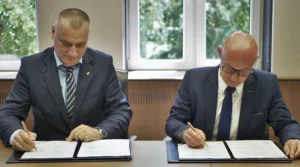What goes in Poland on 11th of March?
CBAM is in line with the expectations of Polish electricity sector
The European Parliament has adopted a resolution on a WTO-compatible EU carbon border adjustment mechanism (CBAM) with 444 votes for, 70 against and 181 abstentions. The proposal is in line with the expectations of the Polish electricity sector.
The resolution underlines that the EU’s increased ambition on climate change must not lead to ‘carbon leakage’ as global climate efforts will fail if EU production is just moved to non-EU countries that have less ambitious emissions regulations. Therefore, the MEPs support the measure put a carbon price on certain goods imported from outside the EU, if the country of origin is not ambitious enough about climate change. This would create a global level playing field as well as an incentive for both EU and non-EU industries to decarbonise in line with the Paris Agreement objectives.
The resolution is in line with the expectations of the Polish energy sector arguing for keeping the support from the EU Emission Trading System in spite of CBAM. „The new mechanism should be part of a broader EU industrial strategy and cover all imports of products and commodities covered by the EU ETS. MEPs add that already by 2023, and following an impact assessment, it should cover the power sector and energy-intensive industrial sectors like cement, steel, aluminum, oil refinery, paper, glass, chemicals and fertilisers, which continue to receive substantial free allocations, and still represent 94 percent of EU industrial emissions,” the EP said in a statement.
„As some analyses suggest that CBAM could replace the carbon leakage mechanisms that are already in place (free allowances – BiznesAlert.com), increasing the vulnerability of energy-intensive industry, a possible replacement should be thoroughly assessed to avoid any unfair treatment of energy-intensive users across the EU,” the Polish Electricity Association argued in April 2020.
Wojciech Jakóbik









